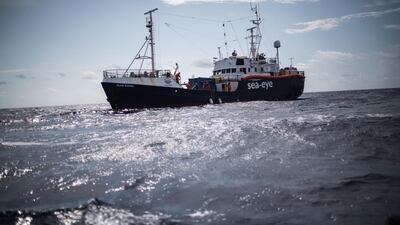Italian journalists have protested government surveillance of reporters’ phone calls during investigations into Libya-based migrant trafficking.
Investigators intercepted conversations held by journalists working for RAI state television and other media outlets, according to reports.
The investigations date back a few years ago, when former Italian government officials were cracking down on humanitarian vessels that were rescuing migrants from traffickers’ unseaworthy boats in the Mediterranean.
The National Italian Press Federation denounced the wiretapping. It demanded to know who had authorised it and why.
Primo Di Nicola, a senator from the populist Five Star Movement, said he had proposed a bill to safeguard journalists from the wiretapping of calls with sources.
"It would be very grave if [the wiretapping] was a way to reveal their sources. Protecting sources is at the basis of journalists' work," Mr Di Nicola said.
The newspaper Domani said hundreds of pages of transcripts of phone conversations were part of an investigation led by prosecutors in Trapani, Sicily, into the activities of humanitarian rescue groups.
The transcripts, it said, contain the names of sources and contacts.
Among the intercepted conversations was one in which a journalist working for the Italian Catholic daily newspaper Avvenire asked a source how to obtain a video showing violence against migrants in Libya.
The country is used by human smugglers who launch boats crowded with migrants towards Europe.
Many of the traffickers’ flimsy dinghies or dilapidated fishing boats founder or capsize in the sea. In the past few years, rescue vessels operated by humanitarian groups have saved thousands of migrants from drowning.
There was no immediate comment from Italian prosecutors, who generally do not speak about ongoing investigations.


